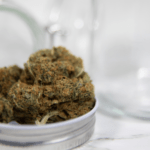The year 2024 witnessed significant developments in cannabis reform across the United States, marked by both advancements and notable setbacks. A pivotal moment was the failure of Florida’s Amendment 3, a ballot initiative aimed at legalizing recreational marijuana, which fell short of the required 60% approval threshold.
Florida’s Amendment 3: A Missed Opportunity
Amendment 3 sought to legalize the possession and use of marijuana for adults aged 21 and over in Florida. Despite receiving 55.9% of the vote, the initiative did not meet the 60% supermajority required for constitutional amendments in the state.
The campaign faced substantial opposition, notably from Florida Governor Ron DeSantis and billionaire Ken Griffin. Griffin contributed $12 million to the opposition effort, while Governor DeSantis utilized state funds for anti-amendment advertisements.
National Landscape: Legislative Efforts and Federal Actions
Beyond Florida, 2024 saw a variety of cannabis reform initiatives at both state and federal levels:
- Federal Rescheduling Efforts: The Biden administration continued its efforts to reschedule cannabis from a Schedule I to a Schedule III substance under the Controlled Substances Act. This reclassification aims to reduce federal restrictions and facilitate research, banking access, and tax relief for cannabis businesses.
- SAFE Banking Act: The Secure and Fair Enforcement (SAFE) Banking Act, designed to provide cannabis businesses with access to traditional banking services, advanced in Congress. The act seeks to address the challenges faced by cannabis businesses operating on a cash-only basis due to federal banking restrictions.
- State-Level Reforms: Several states, including Ohio and Pennsylvania, introduced legislation to legalize recreational cannabis. These efforts reflect a growing trend toward legalization, though outcomes varied based on regional political climates and public opinion.
Implications of Amendment 3’s Failure
The defeat of Amendment 3 has several implications for Florida and the broader cannabis reform movement:
- Economic Impact: Legalization was projected to generate significant tax revenue and create jobs within the state. The failure to pass the amendment delays these potential economic benefits.
- Public Opinion and Future Initiatives: The substantial support for Amendment 3, despite its failure, indicates a shifting public attitude toward cannabis legalization. Advocates are likely to regroup and propose new initiatives for future ballots, aiming to build on the momentum gained.
- Legal and Social Consequences: Without legalization, individuals in Florida continue to face legal penalties for recreational cannabis use, and the state misses opportunities for regulation and control that legalization could provide.
Looking Ahead: The Path Forward
The mixed outcomes of 2024 highlight the complexities of cannabis reform in the United States. While federal initiatives like rescheduling and banking reforms signal progress, state-level challenges persist.
In Florida, the failure of Amendment 3 serves as both a setback and a catalyst for future efforts. Advocates are expected to refine their strategies, possibly introducing revised measures for the 2026 ballot. Engaging in public education campaigns to address concerns and misconceptions about cannabis use will be crucial in garnering broader support.
Nationally, the ongoing dialogue between state and federal authorities continues to shape the landscape of cannabis legalization. As more states consider reform measures and public opinion increasingly favors legalization, the momentum for comprehensive policy changes grows stronger.





